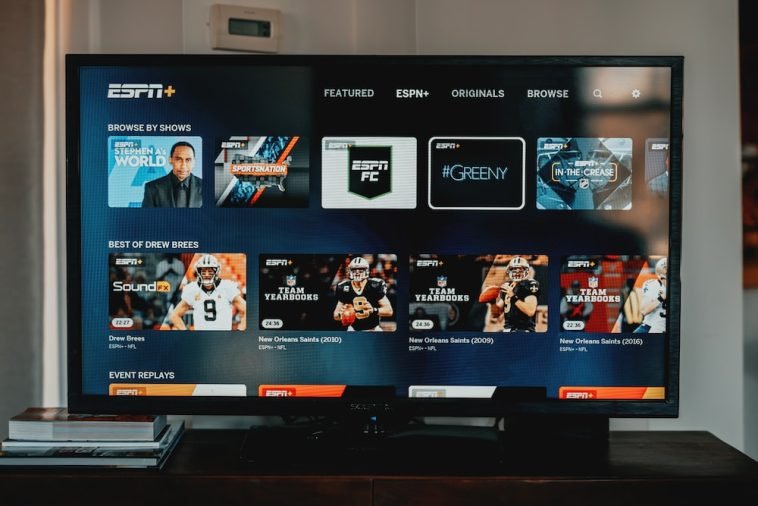Let’s be honest, when most people think about starting a business online, they think of eCommerce stores, affiliate blogs, or digital agencies.
A TV station feels like a giant leap. I get it. But here’s what my years in digital growth have taught me: the most powerful opportunities often lie where others think it’s too complex or capital-intensive.
In Nigeria, with its massive, youthful, and content-hungry population, television is not dying—it’s evolving. And for a strategic entrepreneur, that evolution is a golden ticket.
The landscape has shifted. It’s not just about NTA and the big legacy stations anymore. With the digitization of broadcasting (Digital Switch Over) and the explosive growth of internet penetration, we’re in a new era.
You can now start a TV station that is more agile, more targeted, and more integrated with digital revenue models than ever before.
This isn’t about having a sprawling physical empire from day one. It’s about leveraging licences, technology, and smart content to build a media brand that owns an audience.
I’ve built sustainable income streams in affiliate marketing and eCommerce by finding gaps and serving audiences others overlook. Starting a TV station uses the same core principle, just on a different, more impactful scale.
If you’re ready to move from concept to broadcast, here is your practical, step-by-step guide.
Step 1: The Foundational Work – Niche, Model, and Plan
You don’t just start a “TV station.” You start a media platform for a specific audience.
Find Your Niche & Audience: Who are you talking to? “Everyone” is a recipe for failure and insane costs. Are you focusing on indigenous language entertainment for the South-East? Youth-centric sports and music? Business news for professionals? Christian programming? A hyper-local community station in your state? Be specific. My SEO background screams this: know your target demographic’s search intent, their pain points, and what they love. This niche will guide every decision you make.
Choose Your Broadcast Model: This is critical and dictates your cost and reach.
Free-to-Air (Terrestrial): This is the traditional model, broadcasting over the airwaves. It has the widest potential reach but involves significant regulatory and technical hurdles.
Cable/Satellite (Pay-TV): You partner with platforms like DSTV, GoTV, or StarTimes to host your channel. This gives you access to their subscriber base but you’ll share revenue and need to meet their content standards.
Internet Protocol Television (IPTV): This is the modern, often more accessible route. You broadcast streamed content over the internet. It’s faster to launch, more cost-effective initially, and perfectly aligned with how younger Nigerians consume media. It can be a standalone app or channel on existing platforms.
Craft a Solid Business Plan: This is non-negotiable. Your plan must detail your niche, programming structure, revenue projections (advertising, sponsorships, subscriptions, government grants), a deep analysis of competitors, and a 3-5 year growth strategy. This document isn’t just for you—it’s essential for regulators, investors, and partners.
Step 2: The Legal and Regulatory Maze – Your Licences
This is the part that feels daunting, but it’s a step-by-step process. The key regulator is the National Broadcasting Commission (NBC).
- Company Registration: First, register your media company with the Corporate Affairs Commission (CAC). Decide on a structure (Private Limited Company is most common) and choose a broadcast-ready name.
- Apply for the NBC Licence: This is your core permit. You’ll apply for a specific licence based on your chosen model (Terrestrial, Cable, IPTV, etc.). Visit the NBC website, study the requirements for your category, and prepare your application. This will include your business plan, company documents, details of your technical setup, and a hefty application fee. Pro Tip: The process can be intricate. Budget for, and consider engaging, a media lawyer or consultant familiar with NBC processes. It’s an investment that saves time and costly mistakes.
- Other Clearances: Depending on your content, you may need music licences from the Musical Copyright Society of Nigeria (MCSN) and script approvals from the National Film and Video Censors Board (NFVCB) for certain produced content.
Step 3: Building Your Technical Backbone
You don’t need a giant transmitter on a hill to start anymore.
- The Studio: Start lean. A professional-quality studio can be built in a modest space. You’ll need cameras, lighting, sound equipment, a vision mixer (switcher), and sets. You can lease equipment initially to manage capital.
- Broadcast Infrastructure: This is your “playout” system. For IPTV, this involves encoding software/hardware and a reliable streaming server. For terrestrial TV, you’ll need a transmitter, antenna, and a tower location. Many new stations outsource their playout and transmission to specialized broadcast solution companies. This is a smart way to reduce upfront CAPEX and focus on content creation.
- The Team: You’ll need a small, core team: Content Producers, Presenters, Video Editors, Technical Directors, and a Sales/Marketing lead. Look for multi-skilled individuals. Passion for your niche is as important as experience.
Step 4: Content is (Still) King
Your licence is a permit to broadcast; your content is why people watch. Your programming must be compelling, consistent, and true to your niche.
- Programming Grid: Plan your schedule. Mix live shows (talk shows, news bulletins) with pre-recorded content (series, documentaries, movies). Balance is key.
- Quality Matters: Invest in good storytelling and production value. A shaky phone camera might work for a social media skit, but for broadcast TV, viewers expect a certain standard. Good audio is non-negotiable.
- Local is Powerful: Your biggest advantage over international channels is hyper-relevant, local content. Own that space.
Step 5: Launch and Monetization
Before you hit the “go live” button, have your monetization strategy locked in.
- Advertising & Sponsorships: This is your primary revenue. Sell airtime to brands. Develop attractive sponsorship packages for entire shows or segments. Your sales team must understand your audience demographics to sell effectively.
- Government & NGO Grants: Public service programming can attract grants from government bodies, NGOs, and international development organizations.
- Subscriptions (Pay-TV/IPTV): If you’re on a premium model, you’ll earn from monthly subscriber fees shared with your platform partner.
- Digital Integration: This is where my digital marketing brain lights up. Your TV content should drive traffic to a website or app where you can monetize further via affiliate marketing (reviewing products you feature), selling merchandise, or offering premium digital content. Use your on-air presence to grow your YouTube channel or social media, creating multiple income streams.
FAQs
How much capital do I realistically need to start?
There’s no one figure. A small-scale IPTV station with a basic studio could start with a few million Naira.
A terrestrial Free-to-Air station requires significantly more—for licences, high-end equipment, and transmission infrastructure—often running into tens or hundreds of millions. Start with your business plan; the costs will reveal themselves.
Can I run a TV station remotely or as a solo founder?
Not really. The technical and content creation demands require a team. However, as the founder, your role is strategic: securing funding, partnerships, and setting the vision. You can build a lean team of experts to handle the day-to-day operations.
How long does the NBC licensing process take?
It can take several months from application to approval. It depends on the completeness of your application, the category of licence, and NBC’s internal processes. Do not factor in a “quick” approval into your timeline.
Final Thoughts
Starting a TV station in Nigeria is a serious undertaking. It’s capital-intensive, heavily regulated, and operationally complex. But it’s also a chance to build a legacy media brand, influence culture, and tap into a market that is deeply passionate about content.
The barrier to entry is lower than it’s ever been, thanks to digital streaming, but the need for strategic planning is higher than ever. It requires the heart of a storyteller and the mind of a business strategist.
I’ve built businesses by seeing where attention flows and building a valuable service in its path. In Nigeria, attention is firmly on compelling video content. The question isn’t just how to start, but what story are you uniquely positioned to tell that millions of Nigerians are waiting to hear?





GIPHY App Key not set. Please check settings